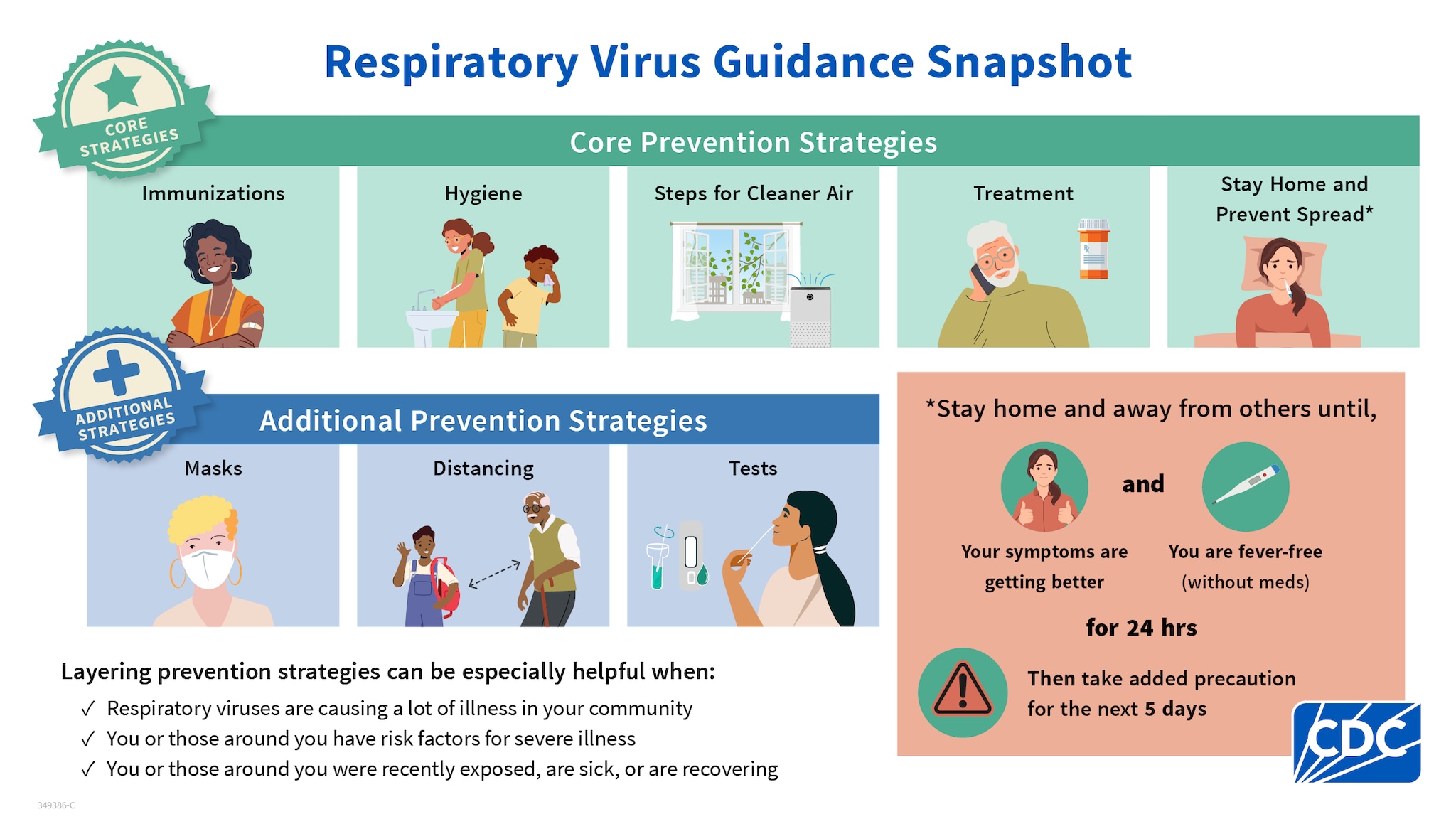Respiratory Viruses: Colds, Influenza, COVID, and RSV
WHAT YOU CAN DO
Even when respiratory illness levels are minimal or low, it is important to keep up with prevention strategies. Follow these tips to help keep you and your loved ones healthy:
- Stay up-to-date with vaccines.
- Take steps for cleaner air, such as gathering outside or bringing in outside air.
- Wash your hands and practice good hygiene.
- Cover coughs and sneezes.
- Stay home if you are sick.
Will antibiotics help a viral upper respiratory illness?
No. Most upper respiratory infections are viral, so antibiotics will not make you feel better faster. Your immune system is your best resource for getting better. Antibiotics can make things worse if you take them when you do not need to. Your immune system is how your body fights illness. Supporting your immune system is the most important way to get you feeling better.
Antibiotics, when taken for viral infections:
- Do not help.
- Kill beneficial bacteria leading to yeast infections and intestinal infections, destabilizing the gut microbiome.
- Cause bacteria to become resistant to antibiotics. When you are sick with a bacterial infection, antibiotics may not be effective.
- If needed, there are anti-viral medications that can help lessen symptoms or shorten the time that you are sick.
What to Do If You’re Sick
- Stay home and away from others
- Return to normal activities when symptoms have been getter better overall for 24 hours or if you have a fever preset, it has been gone for 24 hours without the use of fever-reducing medication
- Get tested to identify if you have a viral illness or something more serious
- Wear a well-fitting mask
- Keep social distance from others
Do you need an appointment?
Call Student Health and Counseling at 262-595-2366 to schedule an appointment if:
- Symptoms are more severe, or worsening even with over-the-counter medications
- Temperature is over 101.0 degrees, that does not resolve
- Severe headache
- Increased facial swelling
- Very large neck glands
- Painful joints
- Chest pain
- Shortness of breath
- Difficulty swallowing own saliva
- Persistent vomiting
- Blurred vision
- Persistent greenish nasal discharge
After-Hours information
Please visit our (NEED TO ADD RESOURCED-see document Michele created)page for more information when the office is closed.
For life-threatening matters:
• Call Campus Police at 2911 on campus.
• If you live off-campus, dial 911.
Immunizations: Wisconsin Immunization Program
(Wisconsin Department of Health Services)
